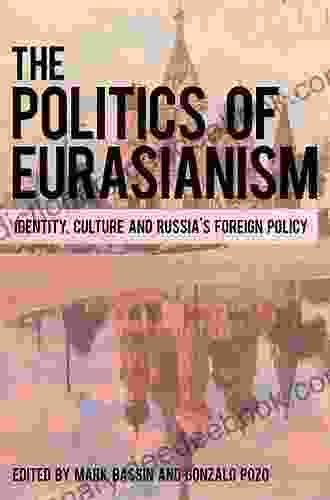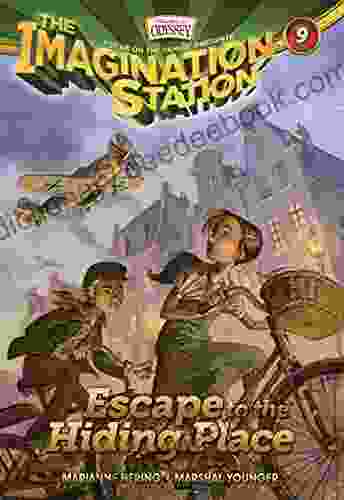Identity, Popular Culture, and Russia's Foreign Policy: Exploring the Interconnections

Identity, an intricate and multifaceted concept, plays a pivotal role in shaping the foreign policy of any nation. It encompasses a complex web of beliefs, values, historical narratives, cultural symbols, and collective memories that define a nation's self-perception. In the case of Russia, a vast and enigmatic nation with a rich cultural heritage, understanding the interplay between identity, popular culture, and foreign policy is of paramount importance. This article delves into this intricate relationship, exploring how identity is constructed, disseminated, and leveraged in Russia's international relations.
The Construction of Identity
National identity is not a static concept but rather a dynamic and contested construct that evolves over time. In Russia, the formation of national identity has been profoundly influenced by its vast territory, diverse ethnic tapestry, turbulent history, and complex geopolitical position. The disintegration of the Soviet Union in 1991 marked a watershed moment in Russia's identity formation, prompting a search for a new national narrative and a redefinition of Russia's role in the world.
5 out of 5
| Language | : | English |
| File size | : | 2819 KB |
| Text-to-Speech | : | Enabled |
| Enhanced typesetting | : | Enabled |
| Print length | : | 384 pages |
| Screen Reader | : | Supported |
| X-Ray for textbooks | : | Enabled |
Historical Narratives and Collective Memory
Historical narratives play a crucial role in shaping national identity, providing a framework through which a nation interprets its past and present. In Russia, the historical narrative revolves around the concept of "Holy Russia," a messianic belief in Russia's divine destiny and its role as a protector of Orthodox Christianity. This narrative, rooted in medieval tradition, emphasizes Russia's unique mission to safeguard its spiritual and cultural values from external threats.
Collective memory, the shared remembrances of a nation's past, is another important element in the construction of identity. In Russia, the victory over Nazi Germany in World War II occupies a central place in collective memory, serving as a source of national pride and a symbol of Russia's military prowess. This victory narrative is frequently invoked by the Russian government to legitimize its foreign policy actions and boost patriotic sentiment.
Culture and Symbolism
Culture, in its multifaceted manifestations, is a powerful medium for expressing and transmitting national identity. Russian culture, with its rich literary tradition, iconic ballet and opera, and globally recognized music, has played a significant role in shaping the nation's self-image. Russian cultural symbols, such as the Matryoshka doll, the iconic Red Square, and the vast Siberian landscapes, evoke a sense of national unity and pride.
The Role of Popular Culture in Identity Formation
In contemporary times, popular culture has emerged as a major force in shaping and disseminating national identity. Popular culture encompasses a wide range of cultural products, including film, music, television, literature, and social media. These products often reflect and reinforce dominant societal values and beliefs, contributing to the construction of a shared national narrative.
Film and Literature
Russian cinema and literature have a long history of addressing national identity and geopolitics. Films such as "The Battle of Stalingrad" (2013) and "Sputnik" (2020) depict Russia's military might and technological prowess, while historical dramas like "Anna Karenina" (2012) explore themes of Russian soul and cultural values. Russian literature, with its rich traditions of realism and psychological introspection, delves into the complexities of Russian identity and its relationship to the wider world.
Music and Social Media
Music, a universal language that transcends borders, has played a significant role in shaping Russian identity. Patriotic songs, such as "Katyusha" and "The Red Army is the Strongest," evoke a sense of national pride and unity. In recent years, social media platforms have become powerful tools for disseminating cultural content and shaping public opinion, contributing to the construction of a digital Russian identity.
Popular Culture as a Tool of Foreign Policy
Recognizing the influence of popular culture on identity formation, the Russian government has actively leveraged it as a tool of foreign policy. This approach, known as "soft power," seeks to promote Russia's image and values abroad through cultural engagement and media outreach.
Cultural Diplomacy
Russia has a long history of using cultural diplomacy to foster international relations and promote its national identity. The Russian government supports cultural exchange programs, film festivals, and other initiatives aimed at showcasing Russian culture and promoting cross-cultural understanding. These initiatives are designed to create a positive perception of Russia and to counter negative stereotypes.
Media and Information Warfare
In the digital age, media and information warfare have become increasingly important tools in the realm of foreign policy. Russia has invested heavily in developing a sophisticated media ecosystem that includes international news agencies, television channels, and social media platforms. These outlets are used to disseminate pro-Russian narratives, attack adversaries, and sow discord in target countries.
The relationship between identity, popular culture, and Russia's foreign policy is a complex and multifaceted one. Russia's national identity, shaped by its history, culture, and collective memory, serves as a foundation for its foreign policy decisions. Popular culture, through its various forms of expression, plays a vital role in constructing and disseminating this identity both domestically and internationally.
Russia's use of popular culture as a tool of foreign policy highlights the growing importance of "soft power" in the contemporary world. By leveraging its cultural resources, Russia seeks to promote its national image, influence global perceptions, and advance its geopolitical interests. However, it is important to recognize that the role of popular culture in foreign policy is not unidirectional. Cultural products can also be used to challenge and critique dominant narratives, providing alternative perspectives and fostering critical dialogue.
As Russia continues to navigate the complex landscape of international relations, understanding the interplay between identity, popular culture, and foreign policy will be crucial for shaping its national narrative and its engagement with the wider world.
5 out of 5
| Language | : | English |
| File size | : | 2819 KB |
| Text-to-Speech | : | Enabled |
| Enhanced typesetting | : | Enabled |
| Print length | : | 384 pages |
| Screen Reader | : | Supported |
| X-Ray for textbooks | : | Enabled |
Do you want to contribute by writing guest posts on this blog?
Please contact us and send us a resume of previous articles that you have written.
 Book
Book Chapter
Chapter Story
Story Genre
Genre Paperback
Paperback Magazine
Magazine Paragraph
Paragraph Sentence
Sentence Bookmark
Bookmark Foreword
Foreword Annotation
Annotation Manuscript
Manuscript Scroll
Scroll Codex
Codex Tome
Tome Classics
Classics Library card
Library card Narrative
Narrative Autobiography
Autobiography Memoir
Memoir Reference
Reference Encyclopedia
Encyclopedia Dictionary
Dictionary Thesaurus
Thesaurus Character
Character Librarian
Librarian Stacks
Stacks Archives
Archives Study
Study Reserve
Reserve Reading Room
Reading Room Rare Books
Rare Books Special Collections
Special Collections Interlibrary
Interlibrary Literacy
Literacy Study Group
Study Group Dissertation
Dissertation Storytelling
Storytelling Reading List
Reading List Theory
Theory Jack Curtis Dubowsky
Jack Curtis Dubowsky John Howard Reid
John Howard Reid Christian De Maussion
Christian De Maussion Zoe Shelton
Zoe Shelton Sarra Manning
Sarra Manning Camron Wright
Camron Wright Hyde Flippo
Hyde Flippo Devon A Mihesuah
Devon A Mihesuah K Curl
K Curl Charles Page
Charles Page Michael E Sawyer
Michael E Sawyer Thomas J Gradel
Thomas J Gradel Sue Welford
Sue Welford Tom Cooper
Tom Cooper W Lance Hunt
W Lance Hunt Stephen R Palumbi
Stephen R Palumbi Alexander Key
Alexander Key Hans Offringa
Hans Offringa Gary O Brien
Gary O Brien Jennie Marts
Jennie Marts
Light bulbAdvertise smarter! Our strategic ad space ensures maximum exposure. Reserve your spot today!

 Gregory WoodsThe Ultimate Guide to Learning How to Play the Piano: A Comprehensive Guide...
Gregory WoodsThe Ultimate Guide to Learning How to Play the Piano: A Comprehensive Guide... Cortez ReedFollow ·12.4k
Cortez ReedFollow ·12.4k Jeremy MitchellFollow ·10.9k
Jeremy MitchellFollow ·10.9k Elton HayesFollow ·14.4k
Elton HayesFollow ·14.4k Brennan BlairFollow ·17.8k
Brennan BlairFollow ·17.8k Dale MitchellFollow ·4.7k
Dale MitchellFollow ·4.7k Chuck MitchellFollow ·3.4k
Chuck MitchellFollow ·3.4k Eddie PowellFollow ·5.2k
Eddie PowellFollow ·5.2k Chris ColemanFollow ·13.1k
Chris ColemanFollow ·13.1k

 Jerome Powell
Jerome PowellBarbara Randle: More Crazy Quilting With Attitude -...
A Trailblazing Pioneer in...

 Jan Mitchell
Jan MitchellLapax: A Dystopian Novel by Juan Villalba Explores the...
In the realm of dystopian literature, Juan...

 Rodney Parker
Rodney ParkerOur Mr. Wrenn: The Romantic Adventures of a Gentle Man
Our Mr. Wrenn is a 1937 novel...
5 out of 5
| Language | : | English |
| File size | : | 2819 KB |
| Text-to-Speech | : | Enabled |
| Enhanced typesetting | : | Enabled |
| Print length | : | 384 pages |
| Screen Reader | : | Supported |
| X-Ray for textbooks | : | Enabled |
















